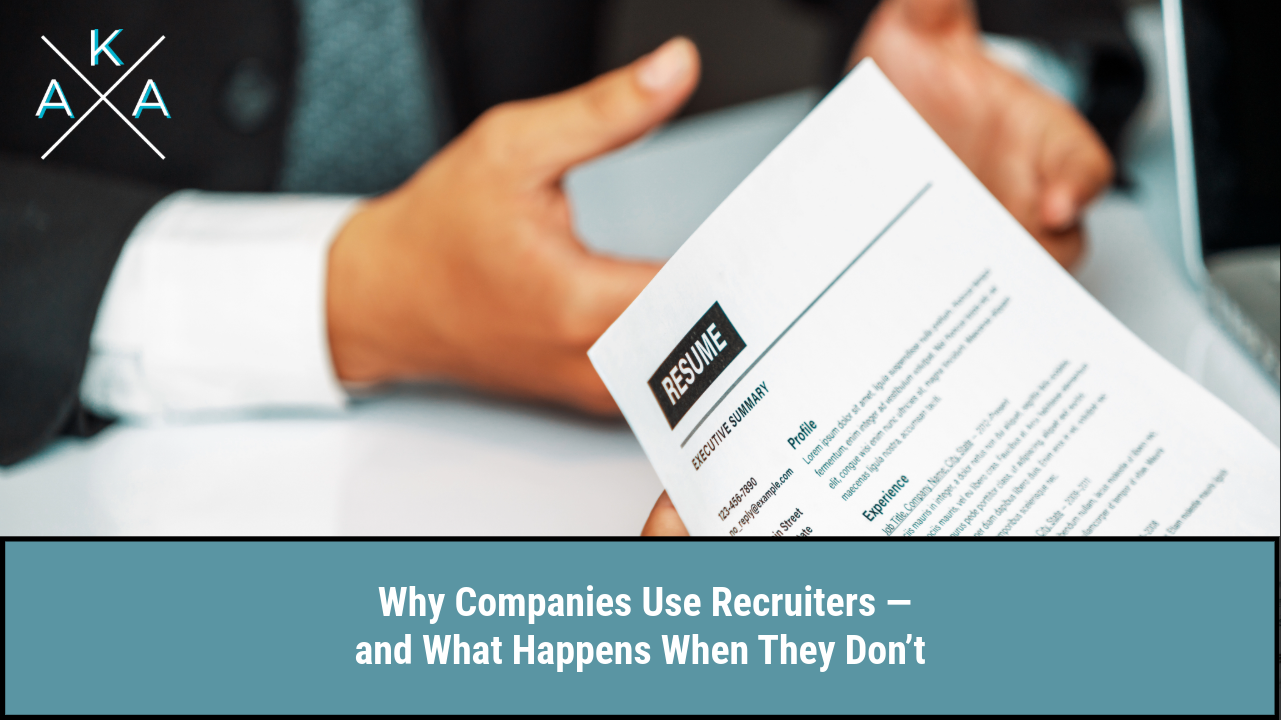I’ve been in enough hiring conversations to know this: most companies think they can handle recruiting on their own… right up until the moment they realize they can’t.
And it usually hits at the worst possible time — busy season, someone quits, a new office opens, a manager goes on leave, whatever. Suddenly hiring becomes this big, heavy thing that nobody planned for, but everyone has to deal with.
And to be honest, that’s usually when they call us. Not when everything is calm and predictable. But when they’re drowning a little.
Hiring Looks Easy… Until You Actually Need to Do It
I always laugh a little (internally) when someone says, “We’ll just post the job ourselves first.” Sure. Everyone thinks that.
Then the resumes start rolling in — in piles — and they realize 90% of them shouldn’t have applied at all.
I once had a client forward me 187 resumes in one email thread and said, “These are all from the last two days. Please help.”
Two days. That’s what DIY hiring looks like sometimes.
And here’s the thing… hiring should be simple. But it’s not. It takes time. And energy. And patience no one has anymore.
Most companies don’t realize how much they’re losing by trying to do it all themselves:
- Time they don’t get back
- Good candidates they miss
- Momentum that just… slows down
It adds up quietly, then suddenly it’s a real problem.
Good People Don’t Wait Around Anymore
One thing that’s changed — and I’ve watched it happen in real time — is candidates have options now.
They’re not sitting by the phone waiting for a call. If you move slow, they move on. Simple as that.
I once watched a great hire disappear because the company wanted “one more internal discussion.” She accepted another offer the next morning.
That one stung for the manager. He really liked her. He still brings it up sometimes.
And that’s where recruiters come in. Not just to send resumes — anyone can do that — but to keep people warm, engaged, communicated with, not lost in some hiring vortex where days turn into weeks.
We keep the movement going. Because someone has to.
And when companies don’t use a recruiter?
Things fall through cracks. Conversations get delayed. Candidates feel ignored. And the whole process gets slower and, honestly, messier.
Internal Teams Are Busy. Really Busy.
This is the part that leaders sometimes don’t want to admit… their teams are already overloaded.
HR is doing payroll and onboarding and compliance. Managers are trying to hit numbers. Directors are juggling a dozen priorities.
Hiring becomes “something we’ll get to.”
But hiring isn’t the sort of thing you can treat like a side project. It demands consistency. Follow-through. Care.
I’ve had HR managers tell me, “I wanted to schedule interviews last week, but we had three fires to put out. I’ll try today.”
And I get it. It’s not their fault. But it’s also why candidates disappear.
When companies don’t use recruiters, these are the things that happen quietly in the background:
- Candidates wait too long
- Managers get frustrated
- Roles stay open longer
- Teams burn out covering the gap
I’ve seen companies lose tens of thousands of dollars because a key role stayed open 45 days longer than planned.
That’s the real cost of slow hiring — the stuff you don’t see on the balance sheet.
Recruiters Don’t Just Find Candidates — We Prevent Chaos
People forget this part. They think we’re resume-senders. But what we really do is reduce chaos.
We make sure hiring stays steady, communication stays clean, and momentum never stalls.
Funny enough, most of the biggest hiring disasters I’ve seen came from companies trying to “save money” by skipping a recruiter.
Like the time a company hired someone who looked great on paper but, to put it nicely… was not great in reality. No references checked. No deeper vetting. They were gone in three weeks.
And the manager said to me, “We should’ve had you screen them — I don’t know what we missed.”
I didn’t say anything, but I knew exactly what they missed: time and expertise. Two things they thought they could improvise.
Recruiters — good ones, anyway — remove risk. We’ve seen enough patterns to spot what most teams overlook.
Sometimes it’s a little detail. Sometimes it’s a big red flag they chalked up to “maybe it’s nothing.”
And when companies don’t use recruiters, those flags slip by.
What Happens When Companies Skip a Recruiter
I’ve watched companies try the “we’ll handle it ourselves” approach so many times.
It usually ends the same way:
- Roles stay open too long
- Teams get stretched thin
- Candidates fall through the cracks
- Managers get frustrated
- The wrong person gets hired
- Or worse — no one gets hired at all
And here’s the truth — hiring isn’t just about filling a seat.
It’s about momentum. Culture. Stability. Confidence. When hiring goes wrong, everything feels a little shaky.
When it goes right, things grow. People breathe easier. The team moves smoother.
Recruiters help with that. Maybe not in a flashy, celebrated way, but in the “things just run better” kind of way.
Final Thought
I’ve been doing this long enough to know that companies don’t call recruiters because everything is easy.
They call because things matter — because the role matters, because timing matters, because the team is tired and needs help.
And I get it.
Building teams is hard. Finding the right people is hard. Doing it while running a full business is even harder.
Recruiters just make the whole thing lighter. Smoother. Less chaotic.
And, honestly, after seeing both sides — companies who work with recruiters and companies who don’t — the difference is pretty obvious.
One moves faster.
The other struggles.
One keeps momentum.
The other loses it.
And if there’s anything I’ve learned in this business… momentum is everything.


